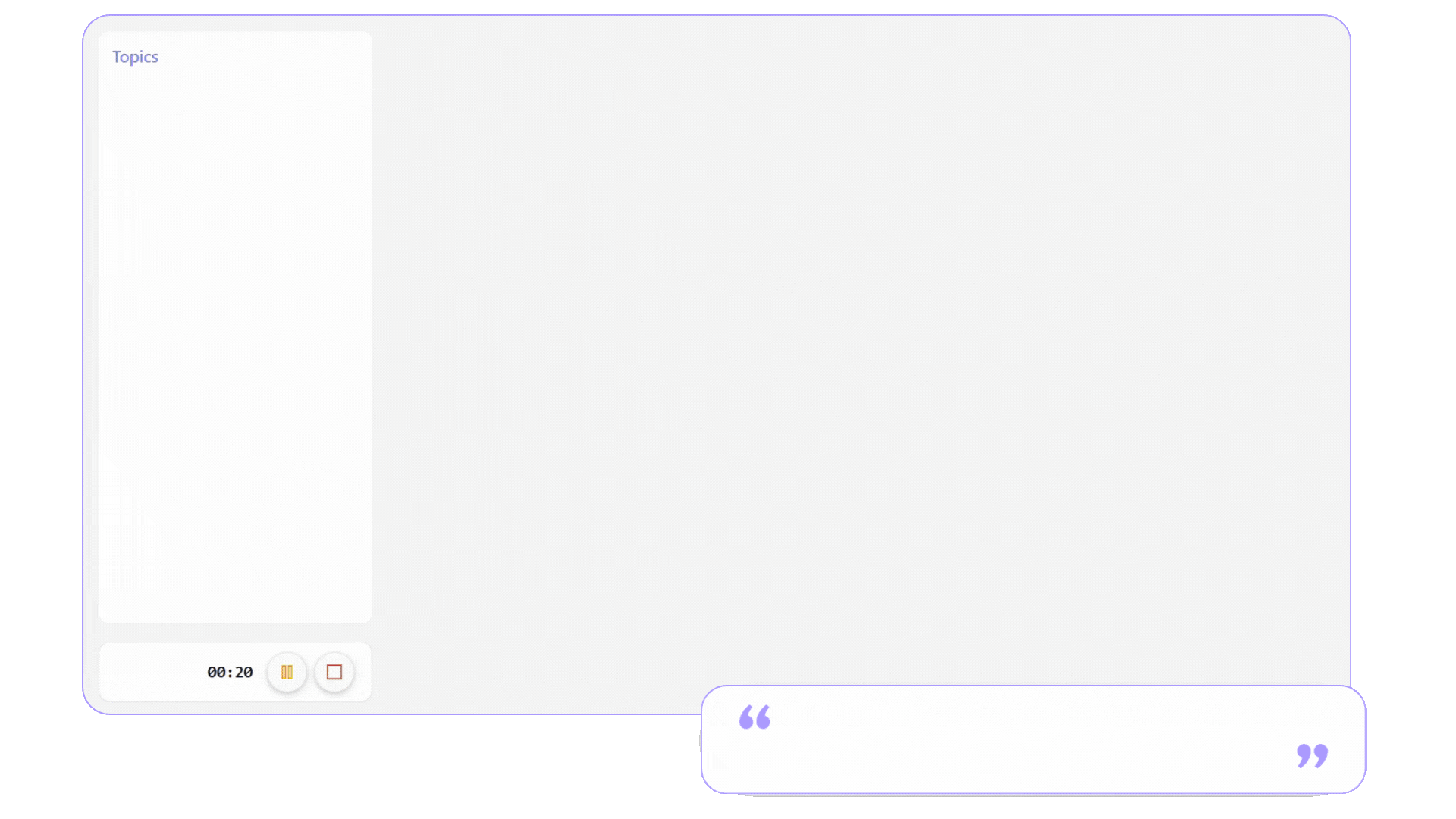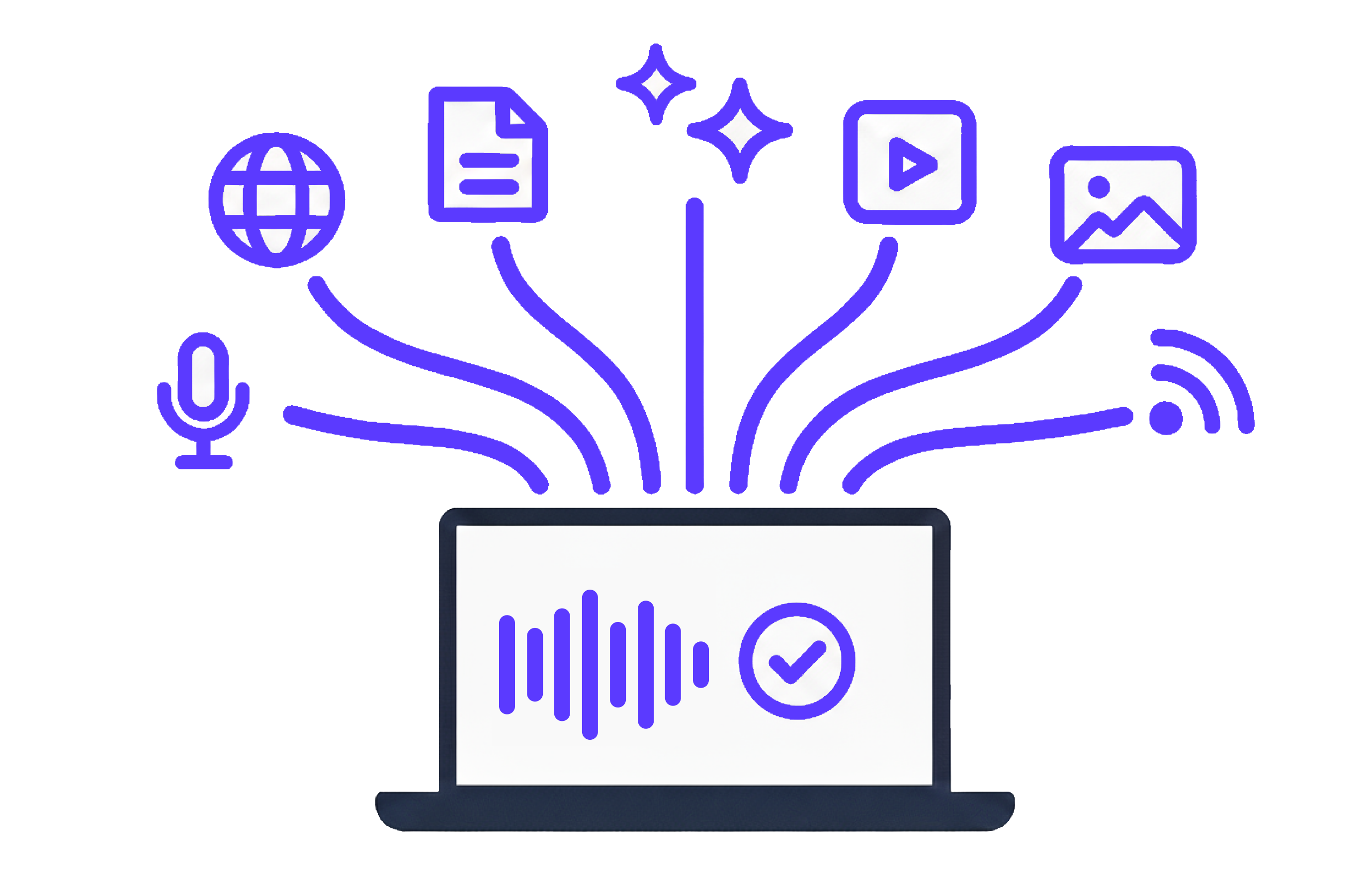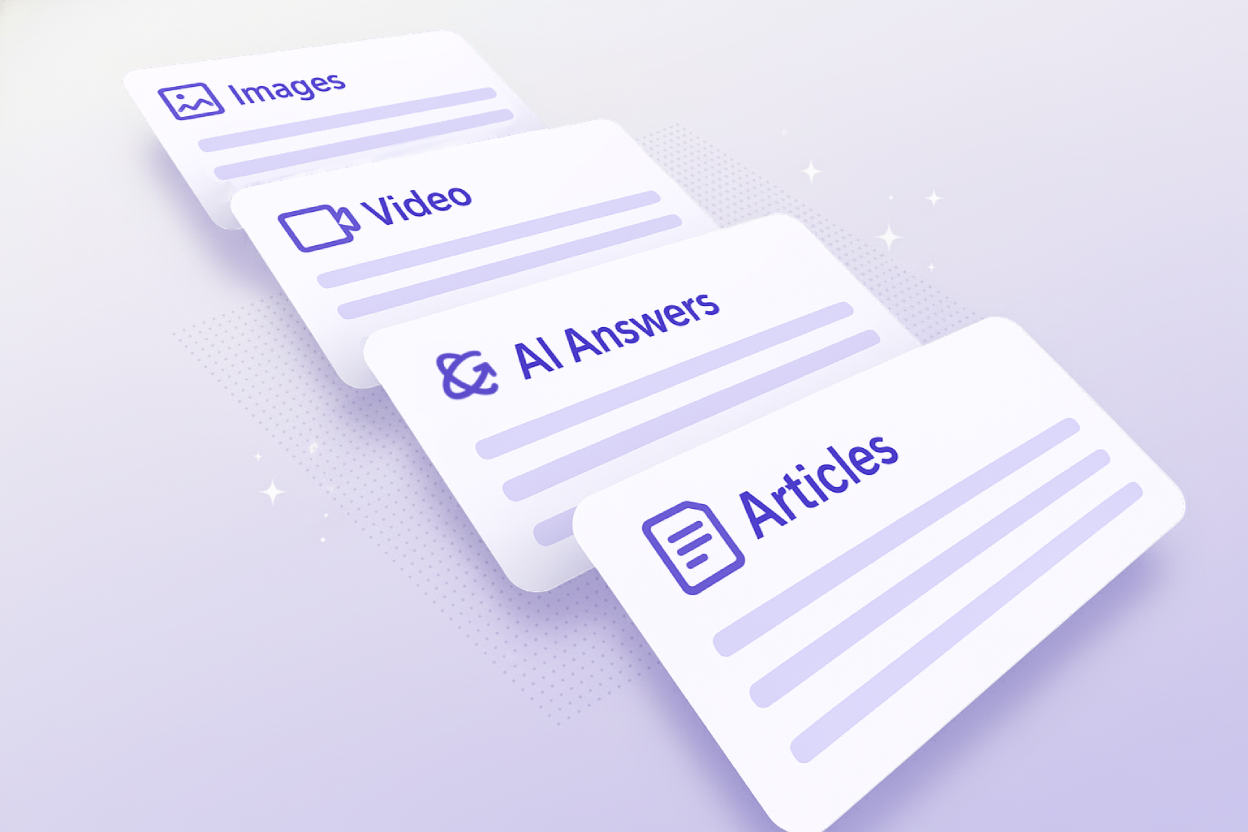Podmod listens to your conversation in real-time and instantly surfaces the facts, stats, and media you need. Never break your flow again.


Empowering creators on
You know these moments. Here's how Podmod solves them.
You mention a stat mid-conversation. Now you're paused, searching through tabs, losing momentum.
References appear automatically as you speak. No pauses, no searches—just natural conversation.
You make a claim but can't verify it live. Later, you discover it's wrong. Now you're fixing it in post or publishing inaccurate content.
Instant verification as you talk. Back up every statement in real time and build credibility with your audience.
You spend hours hunting down facts instead of creating. Your creative work turns into fact-checking busywork.
Real-time content delivery means less prep, more recording. Get your creative time back.
After recording, you realize you're missing context. What should've been a clean recording now needs hours of editing.
Everything you need is already there; full transcript, all content cards, and audio recordings. Fewer edits, faster turnaround, better episodes.
Three simple steps to smarter conversations. Podmod works in real-time, so you never miss a beat.
Podmod listens and transcribes your conversation in real-time, capturing every word seamlessly as you speak.
AI identifies key topics, questions, and moments worth amplifying—no manual tagging needed.
Instant content cards appear with facts, images, articles, and AI answers—ready to reference on-screen.
Pull up product photos, diagrams, infographics, charts, and video clips instantly. Perfect for illustrating concepts without leaving your recording.
Get sports stats, stock prices, poll results, key dates, and survey data on demand.
Pull up authoritative articles and expert blog posts from trusted sources instantly. Perfect for adding credible insights and staying current with the latest discoveries.
Pull up relevant AMA threads, community discussions, and expert opinions. Perfect for adding authentic perspectives and understanding public sentiment.
Access breaking news, recent articles, and trending stories from trusted outlets. Keep your content timely and relevant with current events.
Get instant answers to questions with cited sources. Quick facts, definitions, and explanations appear automatically to fill knowledge gaps.
Podmod AI works during the conversation to pull answers and media so you always stay on topic and informed.
Make every exchange researched, effortless, and credible.

...as you record, like a self updating search engine
Organize, personalize, and export your content seamlessly with tools designed for your workflow.
Track and navigate through every topic discussed in your podcast. Jump to specific moments with a visual timeline that organizes your entire conversation.

Create custom instructions so Podmod AI understands your podcast's unique needs.
Example: "This is a sports podcast. Whenever I mention a player, pull up their season stats."
Example: "This is a health and wellness podcast. When I mention a food or supplement, provide its nutritional benefits and evidence-based research findings."

Export everything you need with one click. Download full transcriptions and audio files for editing, sharing, or archiving.

View all content cards from your recording in one organized place. Reference images, articles, stats, and AI answers anytime—even after the recording ends.

Sample podcast demonstrating how Podmod works in real-time
Join creators who are elevating their podcast production with Podmod's AI-powered assistance.
No credit card required